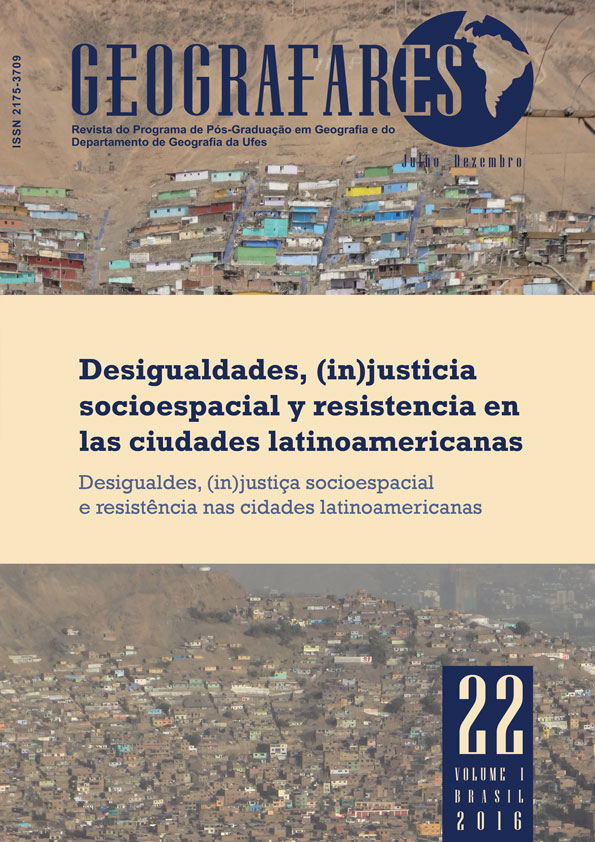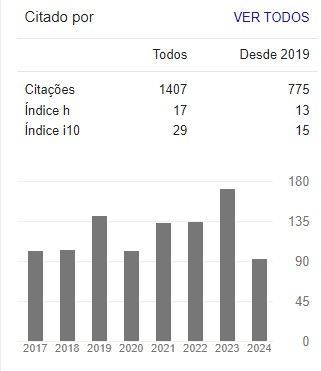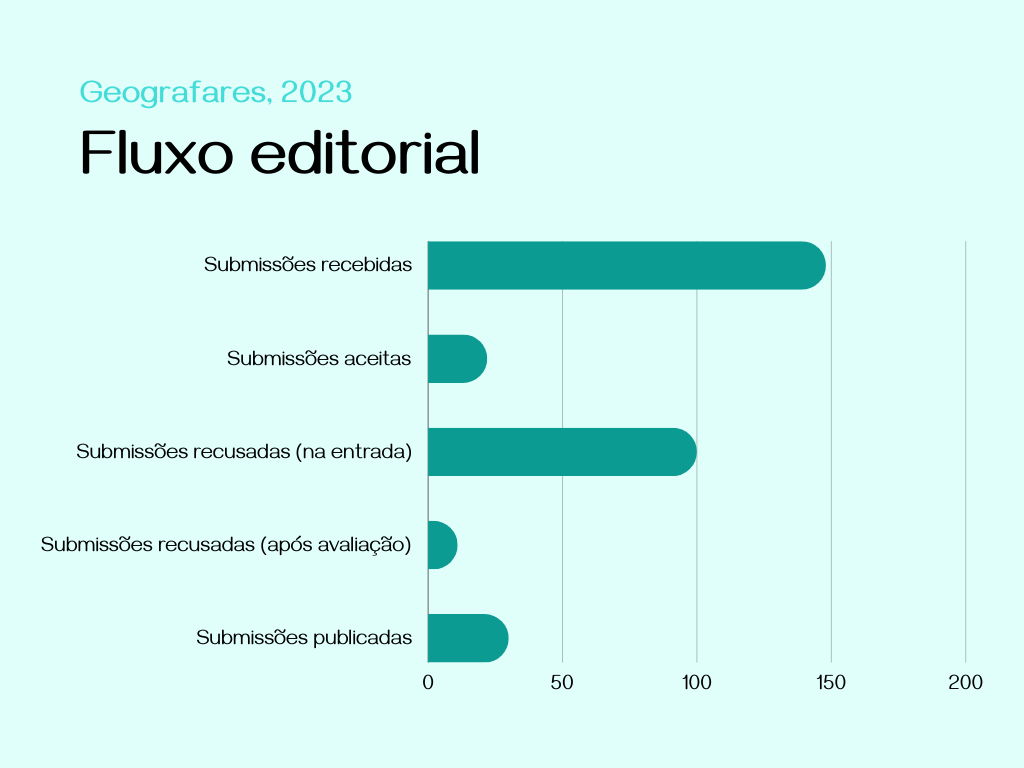Socio-Spatial Conflicts, Processes of Resistance and Spatial Scenario of Justice In Post-Conflict in Colombian Cities
DOI:
https://doi.org/10.7147/GEO22.14750Abstract
Colombia discussed 2016 Peace Accords with insurgencies (FARC and ELN), which would culmination of more than five decades of social and armed conflict, which began with a predominantly rural country and today is urban. However, the negotiations do not include the city, ignoring the dynamics and conflicts present in this. This situation leads us to think how in a context of post-conflict cities solve the socio-spatial conflicts and give attention to the demands that have marked the processes of urban and territorial resistance and be guaranteed spatial justice and the realization of right to the city. This article discusses some of these tensions.
Keywords: city, post-conflict, Colombia.
Downloads
Published
How to Cite
Issue
Section
License
Copyright (c) 2016 Geografares

This work is licensed under a Creative Commons Attribution 4.0 International License.
Copyrights Declaration
Authors who publish in the journal agree with the following terms:
- Authors will keep their copyrights and grant the journal the right to their first publishing, simultaneously licenced under Creative Commons Attribution License which allows sharing their work with authorship recognition and initial release through this journal.
- Authors may sign additional contracts separately diffusing a non-exclusively version of the paper published in this journal (i.g. publishing in institutional repository or as a book chapter), once citing the authorship and initial release through this journal.
- Authors are encouraged to publicize and diffuse their paper online, for example onto institutional repositories or on their personal websites.



























